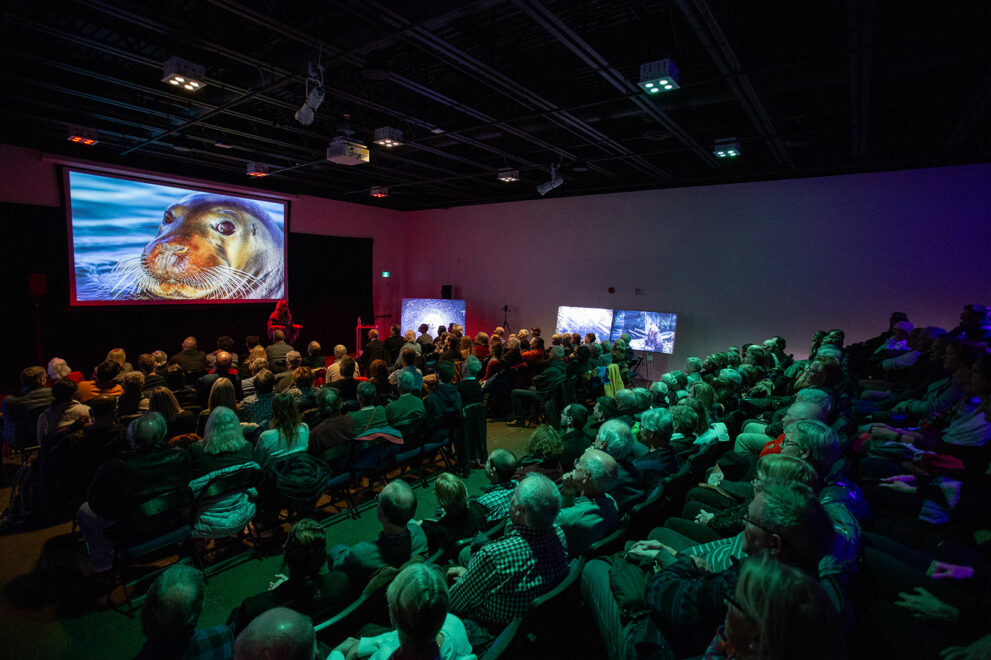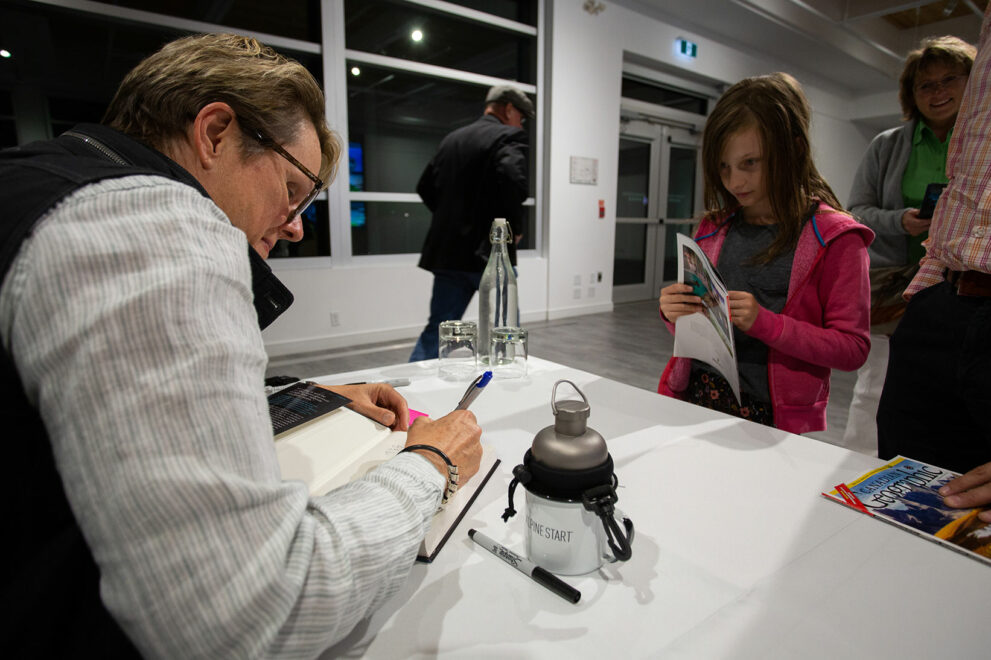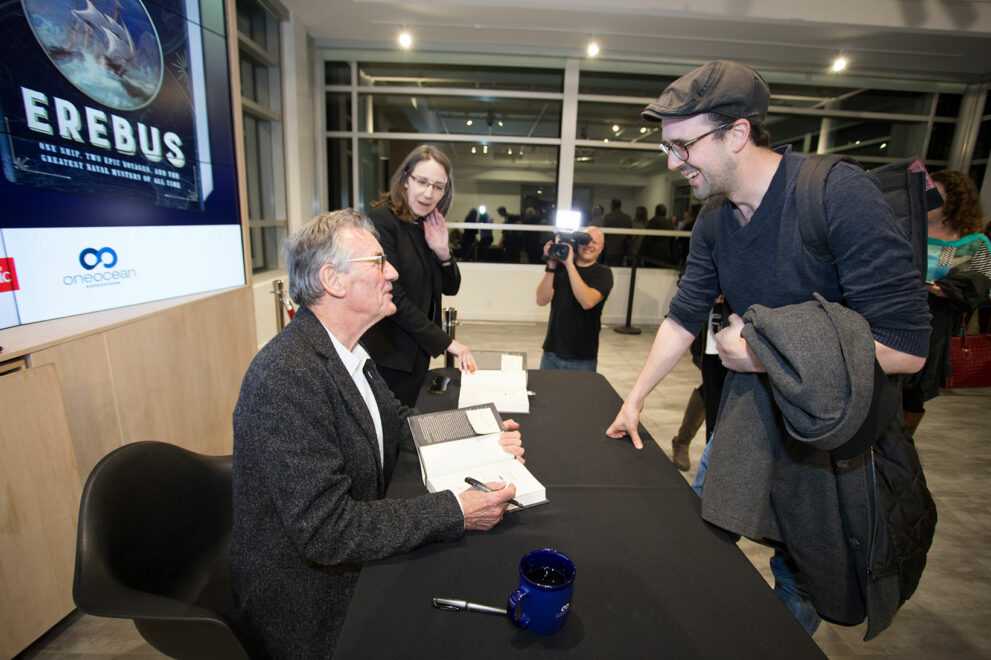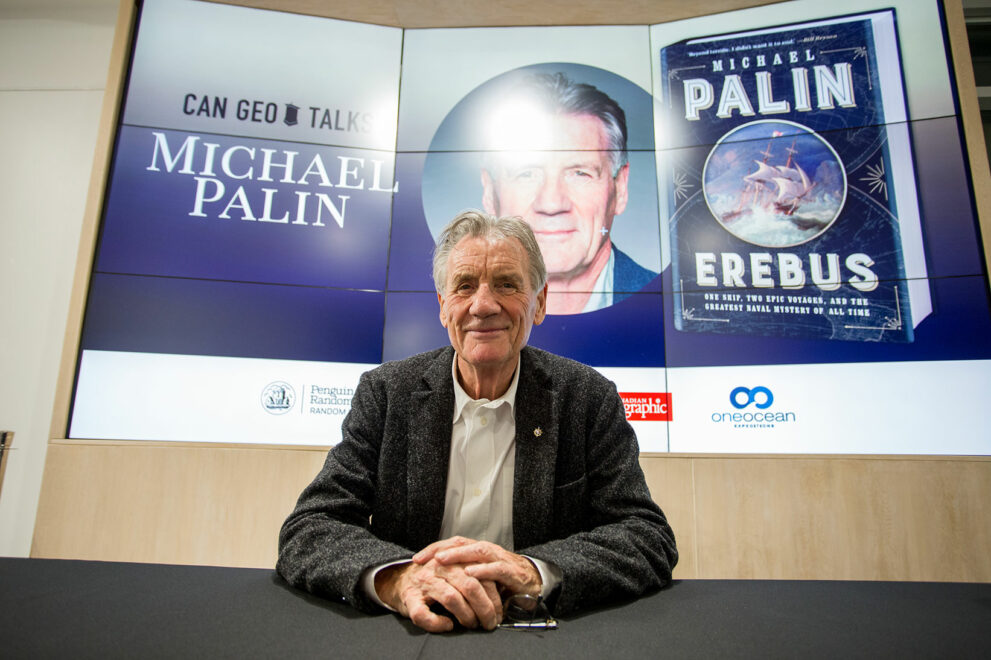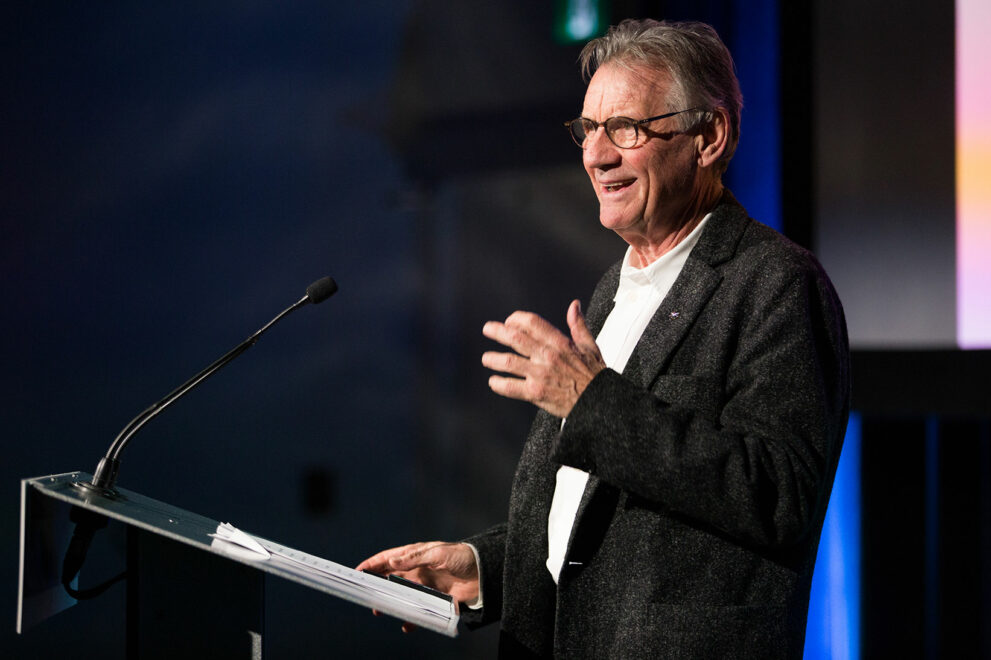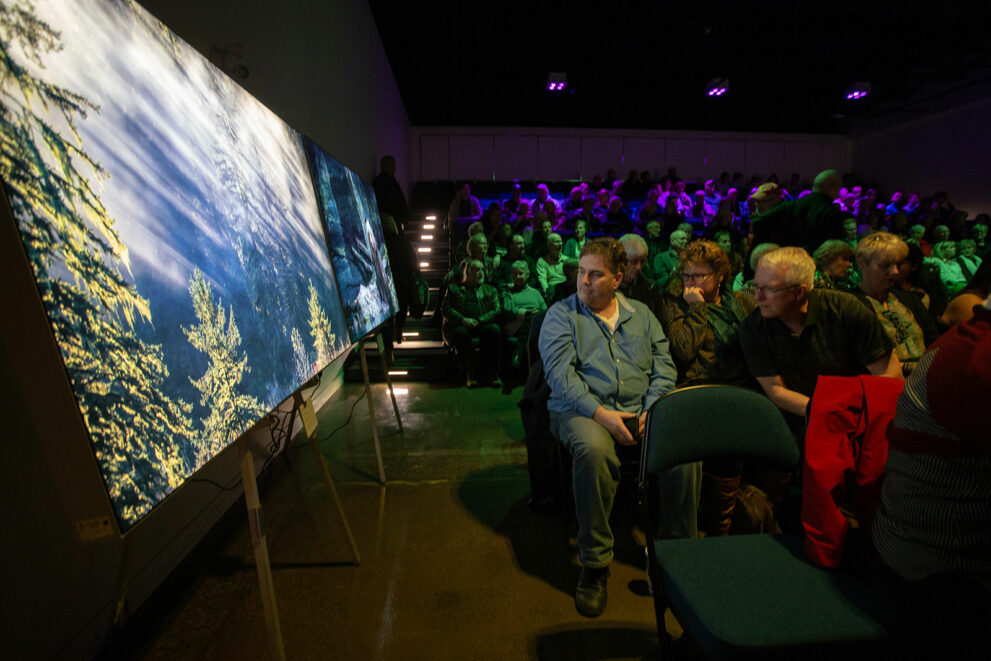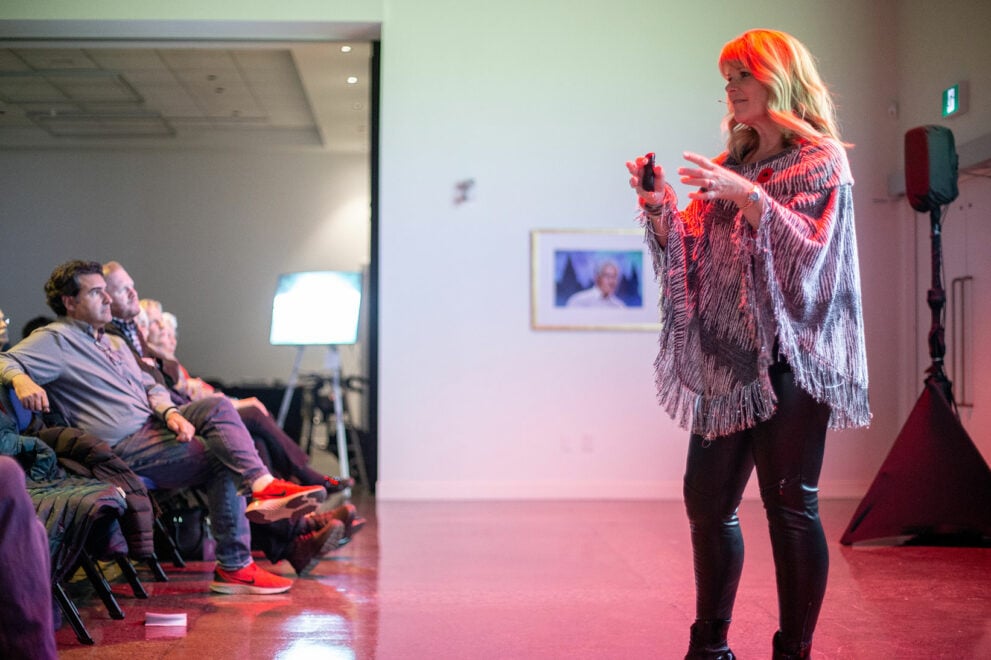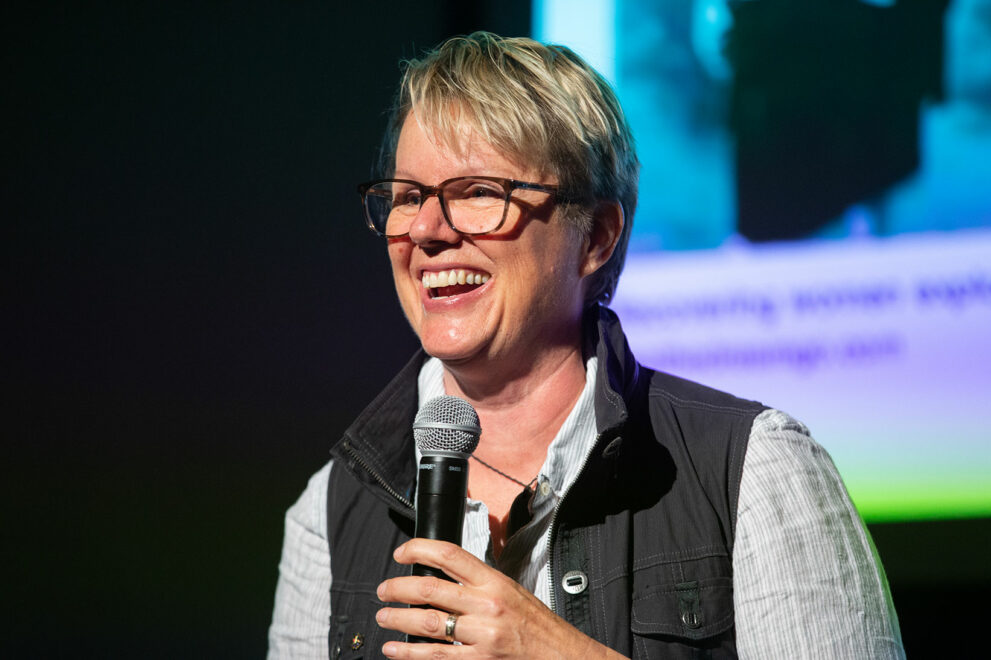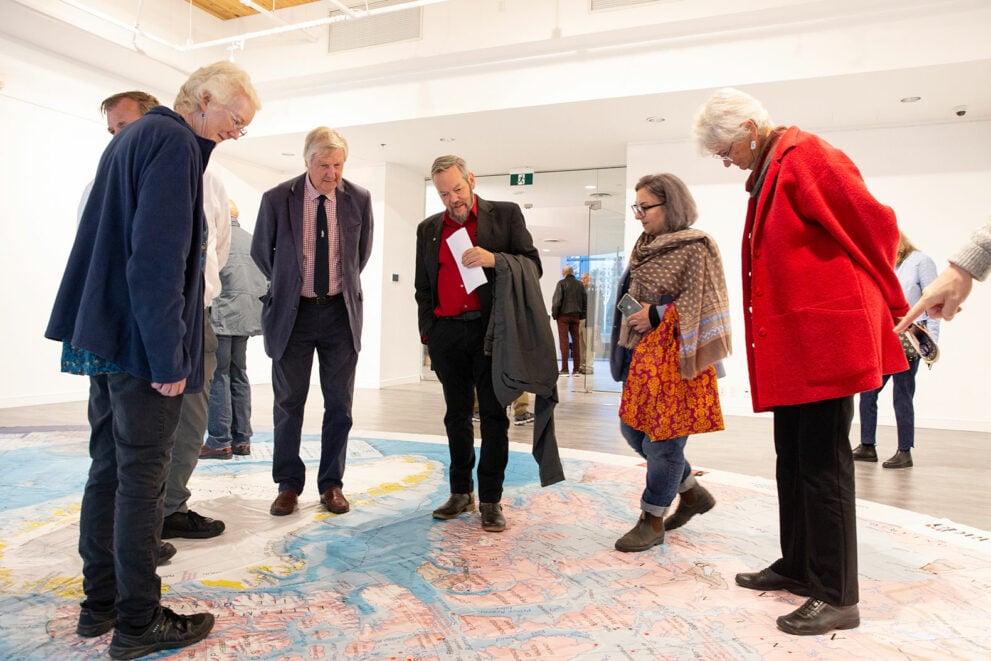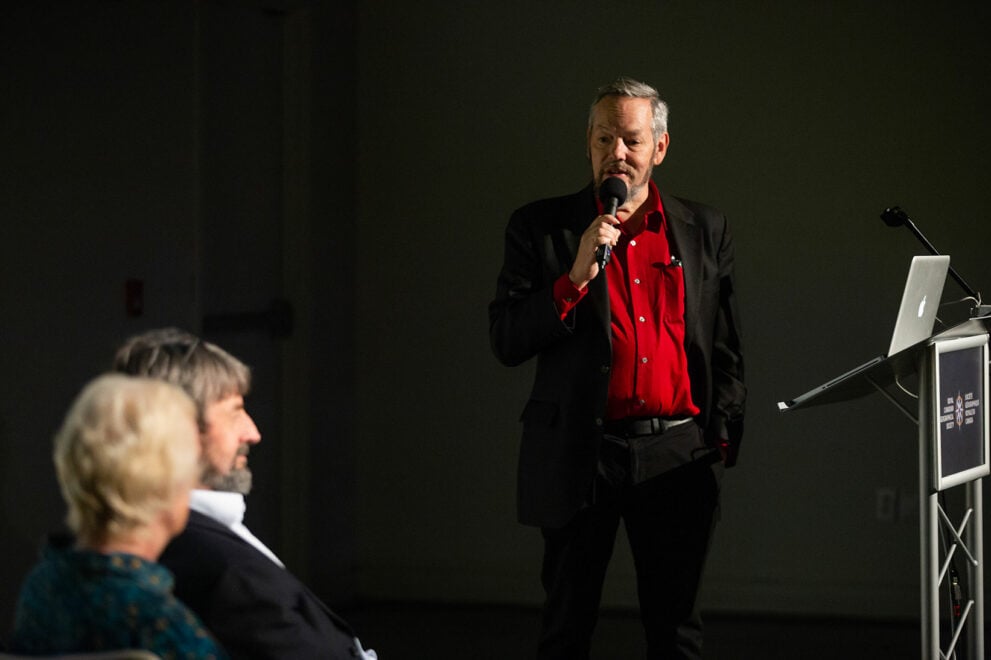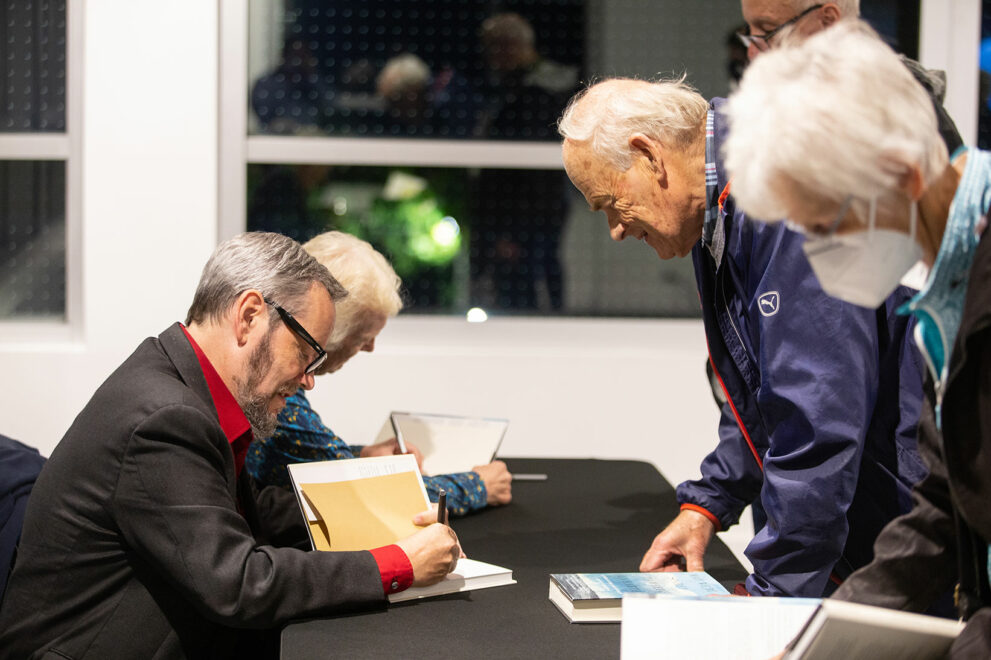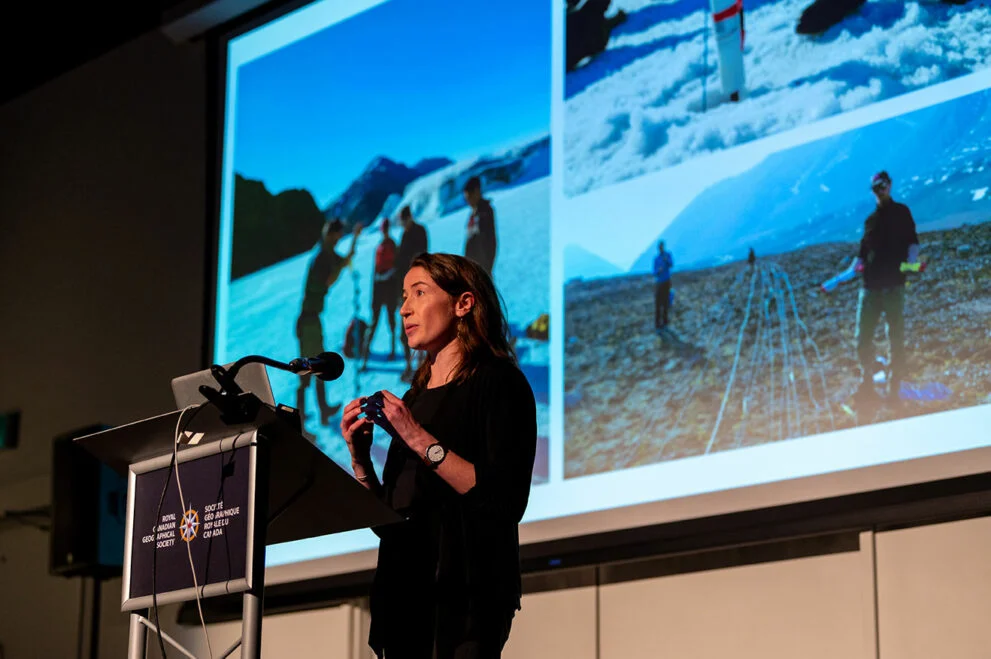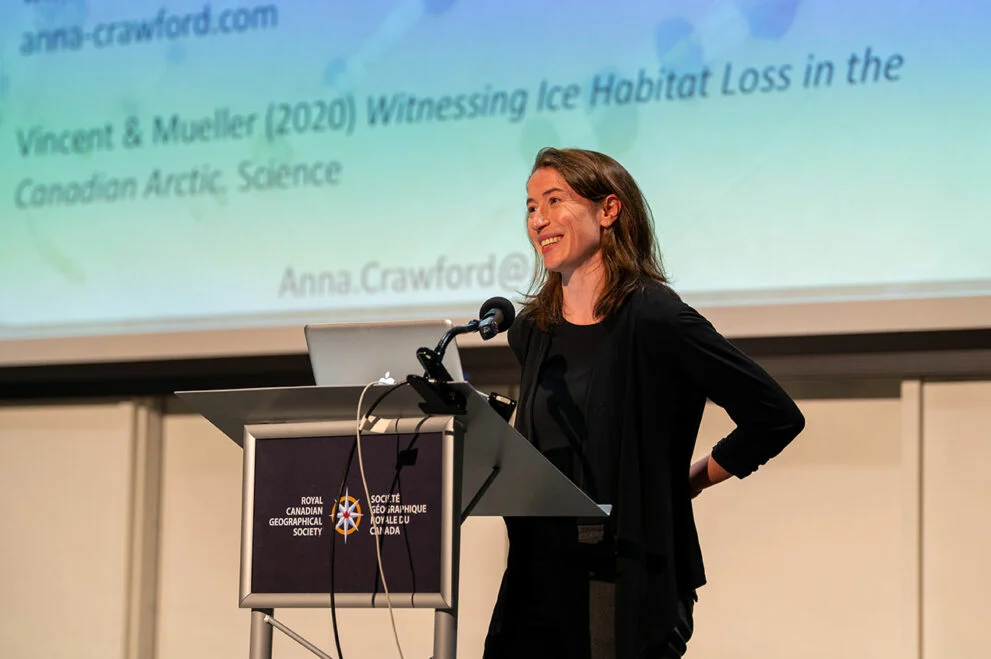Can Geo Talks is a dynamic speaker series featuring some of the most fascinating individuals working in the fields of geography, exploration, environmental science, journalism, history and more. Past presenters include world-renowned cave diver and Royal Canadian Geographical Society Explorer-in-Residence Jill Heinerth, actor and comedian Sir Michael Palin, award-winning photographer Michelle Valberg, and bestselling author and RCGS Westaway Explorer-in-Residence Adam Shoalts. During the COVID-19 pandemic, Can Geo Talks went virtual, with livestreamed presentations from expert ornithologist Dr. David Bird, author and journalist J.B. MacKinnon, biologist Suzanne Simard, historian Margaret MacMillan and more.
We are excited to welcome audiences back to Canada’s Centre for Geography and Exploration for in-person talks. Upcoming events will be posted here. Unless otherwise specified, all events will take place at 50 Sussex Drive in Ottawa.
Upcoming talks
Wednesday, March 27, 2024 — Ken McGoogan

Join Canadian Geographic as historian and author Ken McGoogan shares new answers to a great Arctic mystery.
Urged on by the late Louie Kamookak, the celebrated Inuit oral historian, Ken McGoogan set out to discover the reality behind the myth of Sir John Franklin as Arctic Hero. In Searching for Franklin, while drawing on his own engagement with the north, he intertwines two main stories. In 1821, while leading the Royal Navy’s first overland Arctic expedition, John Franklin rejected the advice of an outstanding Dene leader, Akaitcho, and so ended up losing 11 of his 20 men to starvation, murder, and cannibalism. Yet back in England, when he published his official narrative of this nightmare, he was lionized as The Man Who Ate His Boots. Then, while leading an 1840s voyage of great expectations, Franklin got trapped in the Arctic ice and lost two ships and 129 lives, including his own. This time he was celebrated as a hero who died while discovering the Northwest Passage. Searching for Franklin challenges these visions. The book rejects old orthodoxies, incorporates contemporary science, and proposes a new answer to that most haunting of Arctic mysteries: what was the root cause of the catastrophe that engulfed the final Franklin expedition?
About Ken McGoogan
Ken McGoogan is a globe-trotting Canadian author who has published 16 books, among them six about Arctic exploration. His bestselling titles include Dead Reckoning, Race to the Polar Sea, and Lady Franklin’s Revenge, and his accolades include the Pierre Berton Award, the Drainie-Taylor Biography Prize, and the UBC Medal for Canadian Biography. Ken is a fellow of the Royal Canadian Geographical Society and the Explorers Club, teaches writing at the University of King’s College, and voyages with Adventure Canada as a resource historian.
June 12, 2024 — Pat Morrow

Join Canadian Geographic and the Austrian-Canadian Council as we pay tribute to a legendary mountaineer.
In 1909 the talented young alpinist Conrad Kain left his home in the Austrian Alps on invitation to work as the Alpine Club of Canada’s first mountain guide. Kain and the most talented of his clients left an indelible mark in the Canadian Rockies and British Columbia’s Purcell Range, with over 60 first guided ascents including Mount Robson (1913), Mount Louis (1916), and Bugaboo Spire (1916).
In this presentation by Pat Morrow, we’ll follow in Kain’s footsteps up some of his iconic peaks, while introducing present day local teens to the challenging granite spires of the Bugaboos and to the Canadian Rockies’ highest peak, Mount Robson. We’ll also get to know some of Kain’s friends and clients, such as Albert MacCarthy, who Kain taught how to climb, and who went on in 1925 to lead the first ascent of Mount Logan, Canada’s highest. Video and audio clips will complement historic and contemporary stills along with Morrow’s commentary.
About Pat Morrow
Pat Morrow is an adventure photographer based in Invermere, B.C. and has worked on magazine, book and corporate assignments, as well as shooting video documentaries worldwide with his wife Baiba for the past 35 years. In 1986 Pat was the first to complete the mountaineer’s version of the Seven Summits, climbing the highest peak on all seven continents (as documented in his book Beyond Everest), and received the Order of Canada for his photographic and exploratory work. He and his wife, Baiba, have won nine national magazine awards, and they now concentrate their volunteer efforts on a local environmental organization called Wildsight.
Browse photos from past events
